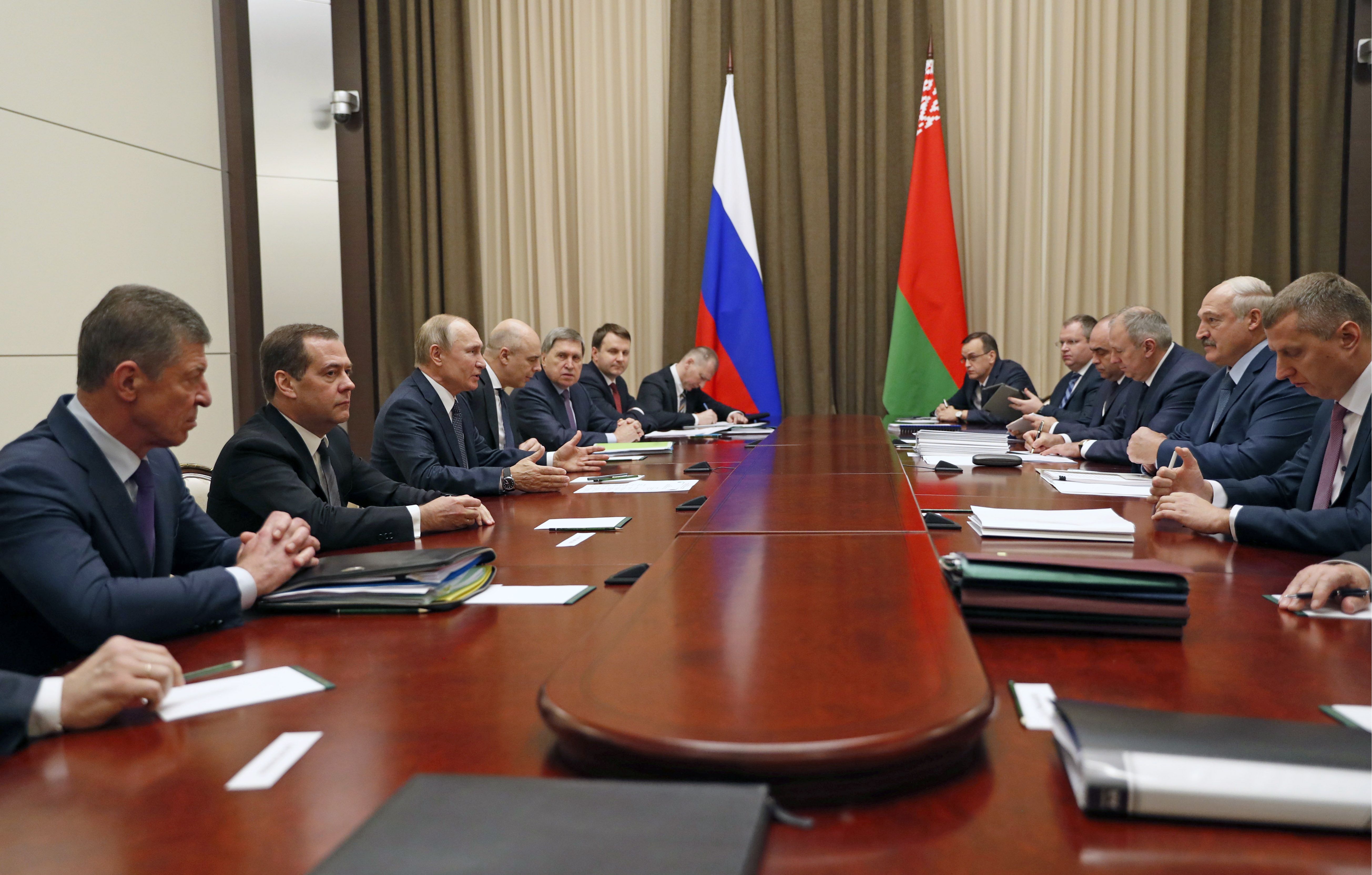Still No Deal in the Belarus-Russia Integration Negotiations

What is the integration road map for Belarus and Russia?
The “Map of economic integration” of Belarus and Russia is an intergovernmental agreement consisting of 31 chapters. They concern, among other issues, the creation of a common energy market, state procurement system, social guarantees, tax code, civil code, and banking supervision. Some of them are subject to the Union State Agreement of 1999, but they have not yet been implemented. The integration plans do not include issues related to national security, science, or healthcare systems. However, implementing the first group of provisions would mean increasing political integration. The adoption of common law would involve, among others, the necessity to equip the parliament of the Union State with real legislative power and to harmonise the judicial system.
Why did the Belarusian president refuse to sign the document?
Negotiations on deepening integration have been ongoing since the beginning of 2019. President Alexander Lukashenka once again refused to sign the integration road map because Russia did not agree to reduce its gas price for Belarus to the average Russian level (about $70 per 1,000 m3). While the Russian proposal to compensate for a “tax manoeuvre” predicts that Belarusian refineries by 2024 will annually receive $1.5 billion in the form of a “reverse excise duty”, the manoeuvre consists of a gradual 5% per year elimination of the export duty on both crude oil and petroleum products, replaced by a minerals tax, which means that by 2024 Belarus would lose out on about $9 billion total. However, this option is only possible if a common tax system is created, and the countries have not reached agreement in this case.
What does the lack of agreement mean for Belarusian-Russian relations?
The Belarusian president’s disagreement with the deepening of economic integration with Russia and the subsequent extension of negotiations mean that the tension in the countries’ relations will persist in the coming months. If Belarus continues to obstruct the negotiations, Russia will not only maintain its current hydrocarbon prices but may hinder trade through, for example, increased phytosanitary controls at the border, continuing to block the issue of regulating the status of border-crossing points and granting some of them international status, which helps to restore transit, and by withholding investments. Also, some media activities directed against the Belarusian authorities and Lukashenka in particular, who will be portrayed as an opponent of integration, can be expected. This could significantly weaken his position during the presidential campaign in 2020.
What are the likely consequences for the Belarusian economy?
The failure to sign the integration documents mean the current gas price for Belarus of around $127 per 1,000 m3 will remain and the price of oil will increase. This will be particularly severe for the Belarusian budget because the sale of petroleum products is the most important source of revenue, amounting to about 20% of its GDP in 2018 ($10.5 billion). Therefore, for the first time in years, the draft Belarusian budget act for 2020 assumes a deficit in state revenues. In the long run, this may mean that Belarus will look for alternative oil supply sources, primarily via Poland and Ukraine. The lack of such significant income may also force the Belarusian authorities to carry out economic reforms. However, considering the structure of the Belarusian economy (dominant role of the state, petrochemical sector subsidising unprofitable enterprises), it will be socially costly.
What does this mean for Belarus’ relations with EU countries?
The lack of agreement with Russia means that Belarus will be increasingly interested in energy cooperation, as well as obtaining investments and loans from the EU. The EU may, therefore, increase its economic and investment involvement in Belarus, especially in the small and medium-sized enterprises sector, as their development will help stabilise the country’s economy.
It will be important to help Belarus’ third sector (e.g., NGOs, non-profit enterprises) and support social and cultural initiatives aimed at promoting the Belarusian language and strengthening national awareness. It also will be increasingly important to start talks on a new partnership and cooperation agreement (PCA), the lack of which significantly hinders Belarus-EU relations. Poland, which would benefit from the establishment of a PCA, should be actively engaged in the negotiations.


